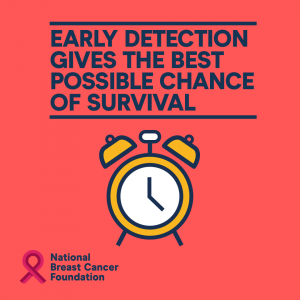October is Breast Cancer Awareness month. Did you know that 1 in 7 women will be diagnosed with breast cancer in their  lifetime? This is a worrying statistic and one we would like to see decrease.
lifetime? This is a worrying statistic and one we would like to see decrease.
Early detection gives you the best possible chance of survival. Here are a few things to look out for:
- a new lump or lumpiness, especially if it’s only in one breast
- a change in the size or shape of the breast
- a change to the nipple, such as crusting, ulcer, redness or inversion
- a nipple discharge that occurs without squeezing
- a change in the skin of the breast such as redness or dimpling
- an unusual pain that doesn’t go away.
If you notice any of these changes, please consult your GP at your nearest Fullerton Health Medical Centre.


